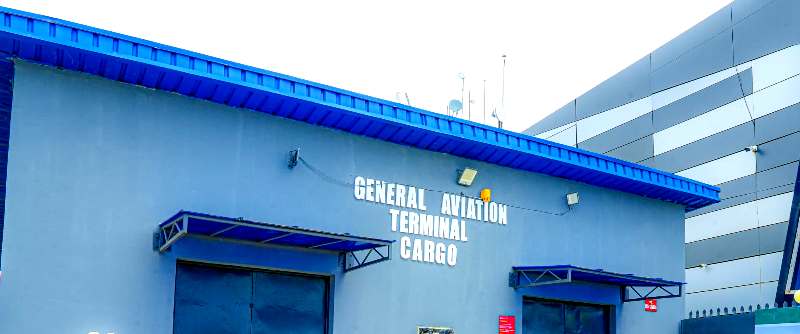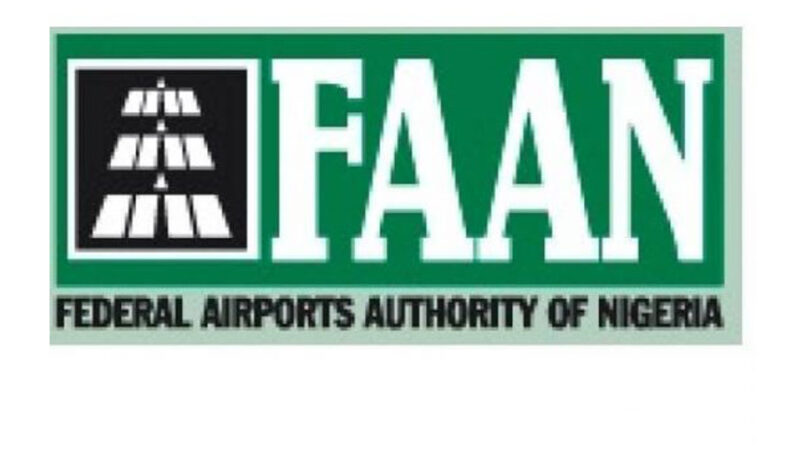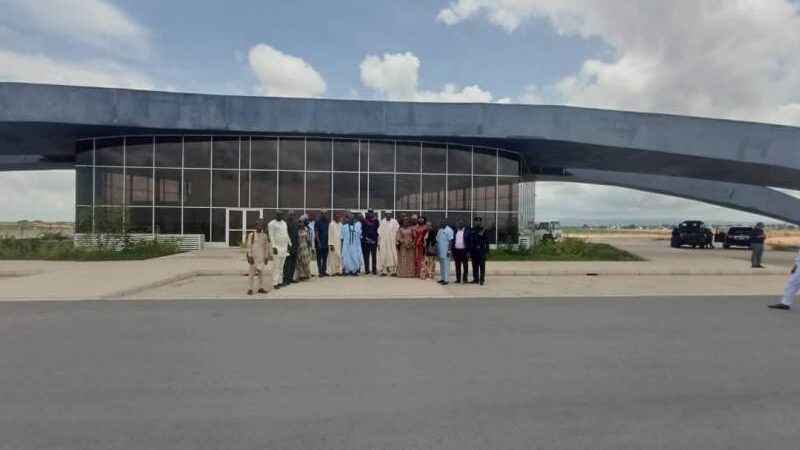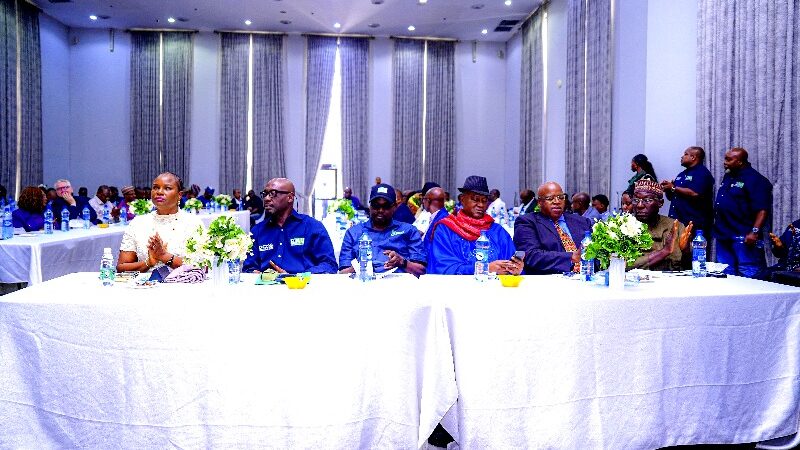The Industry Impact, Experience, Challenges Of Nigeria’s Aviation Journalists

MEDIA IMPACT ON AIRPORT BUSINESS GROWTH
A Presentation By Dr. Chinedu Eze at the 10th Airport Business Summit and Expo (ABSE) 2025 held at Murtala Muhammed International Airport, Lagos, July 17, 2025
Let me start the presentation with a quote from the renowned Joseph Pulitzer. He said and I quote:
Publicity, Publicity, Publicity is the greatest moral factor and force in our public life. — Joseph Pulitzer
Introduction
The media is one of the most powerful tools to inform, enlighten and educate the public. The media shapes public opinions and sets agenda for the government and the public.
The Nigerian media can compete favourably with its counterparts anywhere in the world. The media is very critical in conveying the right message and moulding public opinion. That’s why it is said that the media sets agenda for societal change.
MEDIA IMPACT ON AIRPORT BUSINESS GROWTH
The aviation media in Nigeria is vigorous, knowledgeable and a leading voice in the African aviation reporting.
The former Director-General of the Nigerian Civil Aviation Authority (NCAA), Dr. Harold Demuren, once recalled how the International Civil Aviation Organization (ICAO) monitored events in Nigeria’s aviation industry through media reports. In fact, it is public knowledge that ICAO, IATA, AFRAA, AFCAC and other renowned international aviation bodies, including local and foreign investors are kept abreast of the developments in the Nigerian aviation industry through our media.
So, the Nigerian aviation media stands out in Africa. It took the intervention of Ambassador Ikechi Uko to organize specialization in aviation reporting for some Ghanaian journalists some years ago. Also, former Group Chief Executive Officer of Ethiopian Airlines, Mr. Tewolde GebreMariam, in an interaction with the Nigerian media in Addis Ababa, Ethiopia, eulogized the Nigerian aviation media for its deep knowledge of the global aviation industry. He said he was always comfortable speaking to aviation writers from Nigeria because they have deep knowledge of the aviation industry.
Media coverage of the aviation industry has really come a long way. One of Nigeria’s major airline operators observed recently that in the past, aviation writers used to cast headlines like “120 Passengers Escape Death,” but these days it is journalists outside the aviation industry that cast such headlines. What this means is that aviation writers have evolved over the years and today they could be considered as industry stakeholders.
They have contributed immensely in projecting positive narratives about the industry. When an incident happens, journalists covering the industry weigh it, look at the immediate and long-term impact it will have in the industry, report such incident or accident in a responsible way, convey the right information to the public without being teleguided. The aviation writers have become the most reliable source of authentic information on what goes on in air travel in Nigeria.
Strategic Partnership Between Airport Management and Media
Airport management consultant, Ahmed F. Hamouda, recently published an article on how airport management engages with the media and the public. He pointed out that airport management and public relations are critical components of the aviation industry.
According to him, airports must effectively engage with the media and the public to promote a positive image and maintain their reputation. Effective airport management and public relations can help airports build relationships with the media and the public, promoting a positive and collaborative aviation community.
Media relations are critical component of airport management and public relations. Effective media relations can help airports build relationships with the media and promote a positive image. For example, the Federal Airports Authority of Nigeria (FAAN), as major stakeholder, is expected to have regular update with the media, organize media events to keep journalists abreast of the developments in the agency.
Reporting Sensitive Aviation Sector
The aviation industry is a very sensitive sector, where reporters are expected to be on top of their game because any misinformation may have serious consequences not just on the sector, but the entire economy and the image of the country is at stake. There are issues of security of lives and property at the airports and the safety of flight operations.
According to the International Air Transport Association (IATA), security, like safety, is a top priority for the aviation industry, and it is embedded in all operations. That’s why it’s critical to manage it properly. Threats to aviation continue to evolve. Airlines, airports, governments, international agencies and independent aviation stakeholders are striving to enhance and develop aviation security capabilities. The importance of incident management, collaboration and reporting are very crucial because negative reporting can have dire consequences.
Media Focus on Negative News
Tony van der Meer (2018) observed that news media are often accused of creating a distorted reality, stating that media are frequently skewed towards the negative side if it comes to selecting news items. He explained that the journalistic tendency to focus on negative news is repeatedly considered an outcome of routine selection procedures of those stories that are believed to garner the highest ratings. According to him, scholars have argued that, as a consequence of increased commercial pressures on news media institutions, media’s penchant for the negative and the exceptional has become more prominent over time.
But this does not hold with journalists who report aviation in Nigeria. Aviation writers consider themselves as stakeholders and want to ensure that the industry is not cast in negative light; unless when it is inevitable. The journalists also have obligation to their Editors and must also meet their expectations.
In fact, reporters are often wrongly accused of protecting their beat by not exposing the negative incidents in the institutions they report. So, marrying these sentiments constitute enormous challenge to the reporter who must appease his Editor and as well do not blow events at the airport out of proportion. The latter could frighten air travellers and keep many of them away from the airports.
Aviation reporters have certain obligations to the society. For example, when accident happens they become the only authentic source whose report will be relied on. They are usually buffeted by pressures from their offices but they have to keep their heads calm in order not to misinform the public.
Self-Censorship
And this brings us to self-censorship!
Cipuri (2015) averred that self-censorship is a phenomenon that in different ways accompanies the professional life of every journalist. According to its effects, self-censorship appears as something “good” and “bad.” It is seen as “good‘‘ when it influences in restricting the passions of individuals who are against moral and social norms of society, but it is quite different when self-censorship turns into a cloned monitor who follows those individuals, and warns them that they should not make any ideological mistake.
Following this explanation, because of the sensitivity of the aviation industry, it becomes a responsible duty when aviation journalists decide to step down the report of an incident because of one major reason, not to frighten travellers and the fact that the incident may be magnified by the ignorant public but may not mean much in aviation.
For example, some years ago, a Nigerian airline flight experienced a missed approach. A former Minister of Aviation who was in the flight narrated what he referred to as “gory” experience. He said that the aircraft approached the runway about seven times and couldn’t land. A deliberate exaggeration.
The report was all over the place and sent panic to potential travellers and all, but journalists knew that no pilot could attempt an approach up to seven times if he missed the first one. And that missed approach did not portend any danger, as it was being exaggerated. It becomes the duty of aviation writers to tutor their office and the public about the right information that is not overtly exaggerated or painted in colours. Sometimes it is hard to achieve success in this because many of the Editors already believe that you are too much in love with your beat and the tendency to protect it is high.
Mainstream and Social media mix and how they affect aviation industry
Mike Jennings of ACC Aviation, affirmed that in today’s digital age, social media plays a crucial role in shaping your travel, behaviours, including how you approach flying.
He observed that the information shared on social media often sets trends in flying habits, from the types of airlines people choose to the class of service they prefer. As you see friends and influencers share their latest flying experiences, it can shift your perspective and alter your travel expectations. This effect is particularly strong among younger travellers, who often rely on social validation to guide their decisions.
In terms of travel, that is where the positivity about social media ends in the case of Nigeria. Social media is a platform that runs open window for everyone, where anyone can put up any claim. About two years ago, a new airline had what we call a baptism of fire when its flight was confronted by severe turbulence on its Lagos-Abuja service. The Embraer 145 aircraft was literally tossed about in the air, but it landed safely.
The passengers sent videos and narratives to social media. Some of the videos showed where a passenger upon disembarkation from the aircraft knelt down on the tarmac to thank God for saving her life. Another in a post on social media claimed that her pastor warned her that she would go through a life-death experience in her next travel but God would see her through.
These videos and exaggerated narratives went viral. It now behooves on aviation writers to report what actually happened. This is also a challenge because social media moves very fast and many were already reacting to those embellished narratives.
In his work, ‘Evaluation of the Influence of Social Media on Air Travellers Perception of Domestic Airlines in Nigeria,’ Eze (2025), observed that the major challenges faced by airline operators in the use of social media for relating with air travellers are high level of misinformation from social media users and the inability of the PR units of the airlines to always control such misinformation before they escalate.
Eze carried out a study, which indicated that most air travellers (92.8% of those interviewed) disclosed that most of the information on social media relating to domestic airlines were negative, which shows that social media information negatively influenced the perception of majority of air travellers on domestic airline operations in Nigeria.
So, aviation writers do not just report events in the aviation industry, most often they are called to clean up the mess made by ignorant air travellers on social media.
CHALLENGES
Poor Interface with Journalists
As earlier stated, crisis communication is a critical component of airport management and public relations. Effective crisis communication can help airports manage crisis effectively and maintain their reputation. There is one snag with aviation agencies, airlines and other organizations in the sector. The organizations are not quick at responding to requests of information from journalists, especially the agencies. You are writing a report and you call the public relations manager to confirm information or to get details on specific issues, you will hardly get it. In other words, it takes a long time to get information from aviation agencies.
Ideally, spokespersons in the aviation agencies should be persons versed in the agency in particular and the industry at large. For example, if you contact FAAN for the summary of annual or periodic passenger, cargo or aircraft movement, you may not get it. Data/statistics are unnecessarily prevented from the public glare. It is easier to get such data from South Africa, UAE, Ghana and other countries than to get a little data about the Nigerian aviation industry from the agencies. Their failure to respond appropriately denies the reporter the opportunity to get authentic information for his report. Reporters now rely on third parties or sources to get information about agencies and organizations in the industry, which may not be reliable but the only choice the journalist has.
Delay in Response to Incidents
On several occasions, concerned agencies and airlines have failed in their responsibility to respond swiftly in case of an incident or serious accident. In August 2023, a single engine aircraft crashed along Oba Akran Avenue in Ikeja, Lagos. Aviation writers hoped to get immediate response from the NCAA and the Nigerian Safety Investigation Bureau (NSIB), but there was no confirmation of the accident from both agencies.
The National Emergency Management Agency (NEMA) came to the rescue, but not with all the needed information. By then the news was all over the social media with different colourations.
Hiding Information
Some Nigerian airlines tend to hide incidents from journalists, hoping it would go away but after reporting to the NCAA and thinking everything has been taken care of, the news begin to filter in vague forms and begin to spread slowly. When this happens late in the evening, the airline concerned will be bombarded with calls and not well prepared, they give uncoordinated responses. Journalists, under pressure to report the incident will fill in the gaps for the operators. The following day, the airline will make haste to correct misrepresentations. But if such an airline had released a press statement immediately on the issue, it would have doused tension and put the narrative in proper perspective.
RECOMMENDATIONS
Knowledgeable Spokesperson
I advise that agencies should appoint spokespersons who are well-knowledgeable about the agencies they are representing or are ready and willing to learn. They should be a one-stop shop about everything concerning the agency, from engineering, operations, commercial and administrative. Such a person should be updated daily about events taking place in the agency. There are spokespersons that will not respond to your calls because they know nothing or have little knowledge about an agency they are supposed to speak for. Yet, subordinates are not authorized to speak. They can be seen, but not be heard.
Timely Response
Airlines should issue statement on incidents they think would be newsworthy instead of allowing journalists to dig them out themselves. When journalists do they may not represent your views well. And knee-jerk reaction tends to exacerbate negative impressions because they confirm earlier reports and draw attention to new readers who may not have known about the earlier reports.
Digital Communication
Van der Meer recommends that airports should embrace digital communication because it is a critical component of airport management and public relations. According to him, effective digital communication can help airports reach a wider audience and promote a positive image of airport management. Beyond establishing websites, FAAN, NCAA, for instance, should have social media platforms where they could have flight schedules and update travellers and others hour to hour about events happening at various airports under its management.
Thank you






